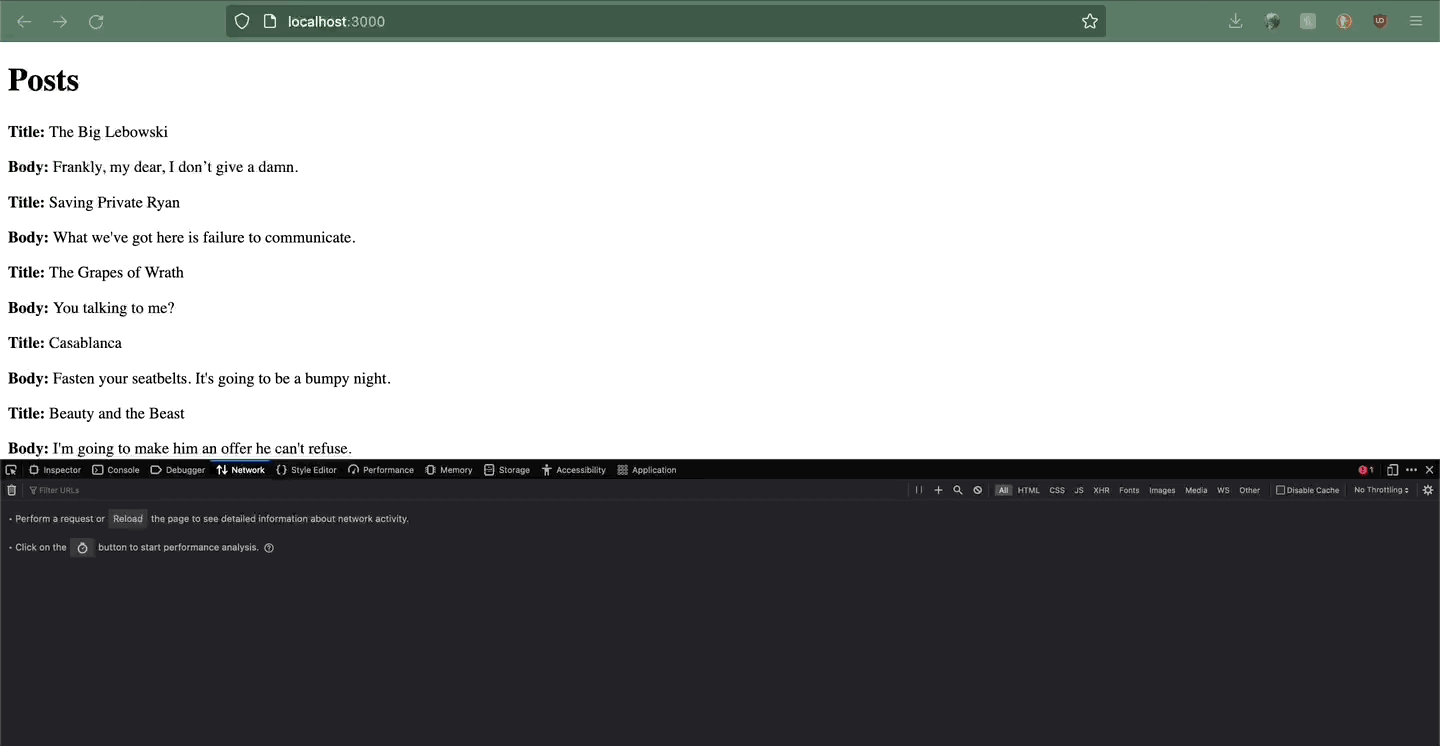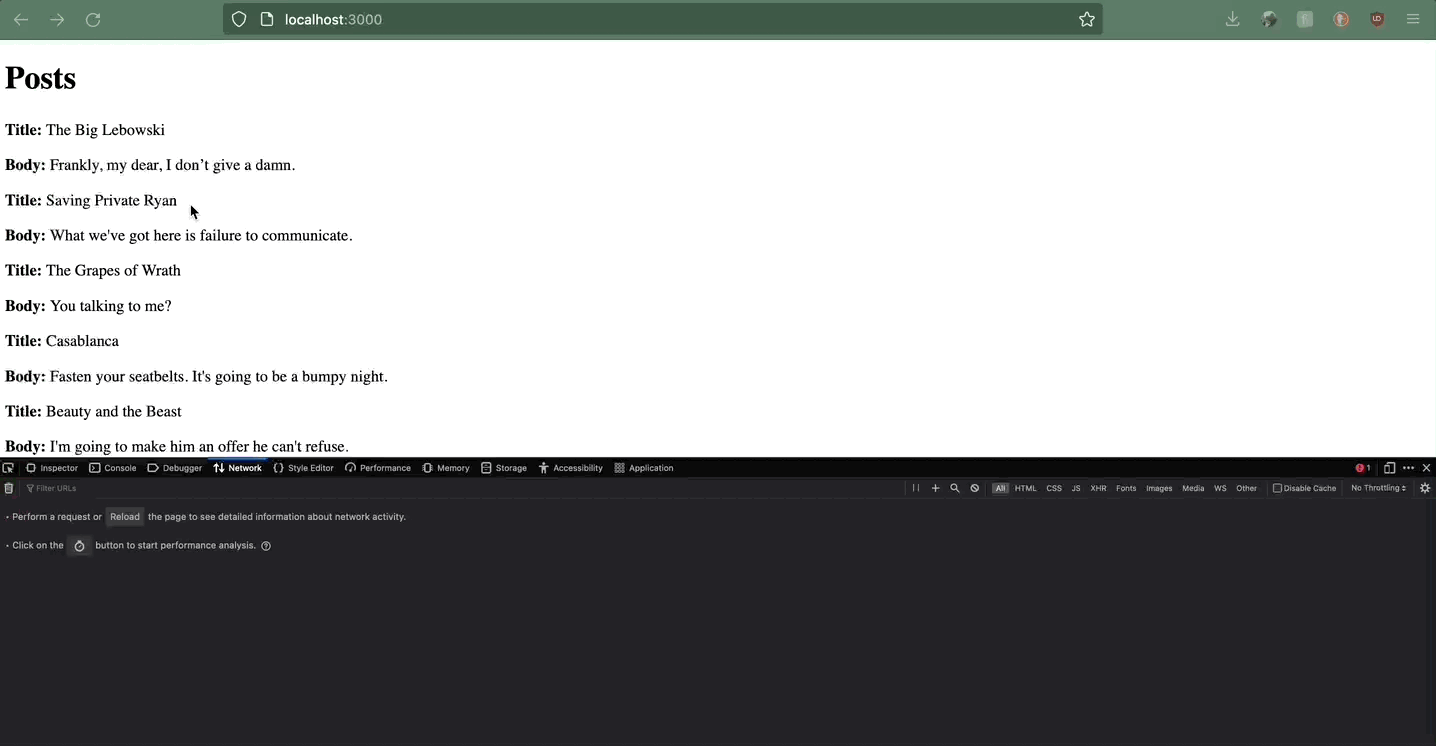 Load partials async with Turbo Frames
Load partials async with Turbo Frames
Sometimes loading a collection of partials can take LOOOOONG.
🤔 What if we leverage turbo_frames src and load each partial from a collection as a separate request?
This way each partial can be loaded in a separate request at it’s own pace without slowing the whole page down.
# app/views/posts/index.html.erb
<% @posts.each do |post| %>
- <%= render partial: "posts/post", locals:{ post: post } %>
+ <%= turbo_frame_tag post, src: post_path(post), loading: :lazy, turbo_frame: "_top" do %>
+ Loading...
+ <% end %>
<% end %>
Wrap the post view into a turbo_frame_tag:
# app/views/posts/show.html.erb
+<%= turbo_frame_tag post do %>
<%= post.title %>
<%= post.body %>
+<% end %>
Finally, instead of rendering the template show.html.erb we will use the action to render the _post.html.erb partial:
# app/controllers/posts_controller.rb
def index
@posts = Post.all
end
def show
post = Post.find(params[:id])
render partial: 'posts/post', locals: { post: }
end
Result:
Before: Sending 1 request:

After: Sending 101 requests:

⁉️🤔 So there’s the question: 1 heavy request OR 100 light requests?
If you want to reserve the #show action for the default use (rendering show.html.erb), consider generating a separate route for the turbo_frame-loaded _post partial.
To increase loading performance even more, the next step would be to replace the partial with a ViewComponent, as ViewComponents load faster than partials.
Did you like this article? Did it save you some time?